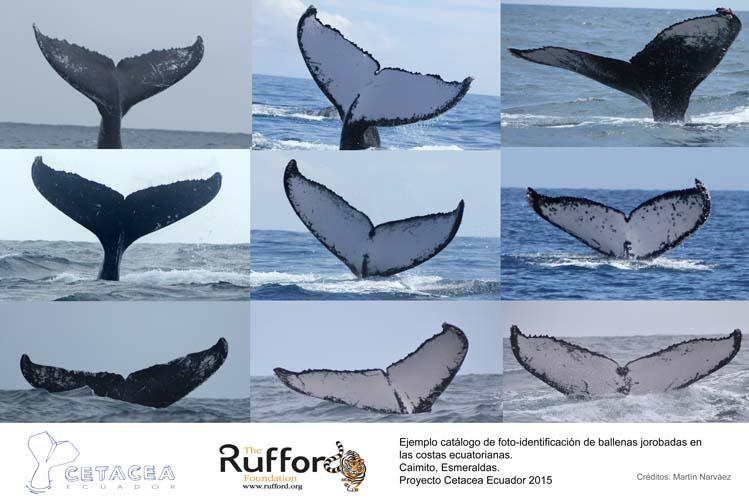Javier Paul Oña Lema
Other projects
21 Jun 2012
Humpback Whale Habitat Preference and Occurrence of Songs as an Initiative to the in Stiu Conservation in the Coast of Bajos de Atacames, Esmeraldas, Ecuador
16 Jun 2014
Humpback Whale Habitat Preference and Occurrence of Songs as an Initiative for in Situ Conservation off the Coast of Ecuador and to the Galapagos Islands
Developing a bioacoustics research focused in the humpback whales songs, along with training for young researches, students and local community to encourage their participation in scientific and education activities.

The first educational material carried out by local students.
Humpback whale songs are highly complex and transmit vital information between individual whales. Not all whales sing the same and humpback songs are shaped by the individual whales of a geographic region communicating with one another. Just like in humans. Our language and traditions are shaped by the culture that surrounds us. This cultural process helps the whales to enhance their songs for reproduction and other social interactions within a region. Little knowledge exists on the evolution of humpback whale songs in the Southeast Pacific and how song dialects vary among different breeding grounds and seasons. At the same time, human activities such as maritime traffic are constantly on the rise along the coasts of Ecuador. Therefore, information on the acoustic behaviour of whales and the identification focal areas where they communicate is crucial to develop efficient conservation strategies. Long-term studies of the acoustic behaviour are the first step to improve our knowledge of the contextual use, geographic variation, and cultural transmission of humpback whale songs.
The present project will continue the study of humpback whale songs, and will allow to identify important areas for humpback whale conservation. Further, from previous crude data (audio and visual material), these will be transformed into friendly education resources to be used in bioacoustics training, academic context and playful environmental activities. During the 2016 whale watching season, we will train a students and locals as fieldwork assistants in the use of song recording equipment, research protocols and responsible whale watching. Boat-based humpback whale acoustic survey for 6-8 hours per day between June to September will be conducted in the coast of Quingue, Galera San Francisco Marine Reserve. Further, a bioacoustic training workshop will be conducted by a scientific expert. The target group will be regional local researchers (Southeast Pacific), and students interested in cetacean research. The training will allow to learn regarding the sound measuring and acoustic structure to classify songs and undertake quantitative analyses of the repertoire of humpback whales. Encouraging and supporting researchers at this early stage in the emergence of bioacoustics will be essential for the production of high quality research, and robust conservation outcomes in the region.